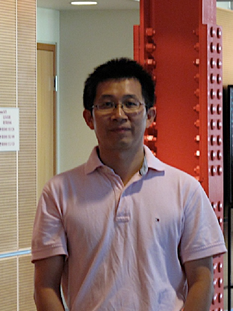
MDASC 2019
International Workshop on Mobility Data Analytics for Smart Cities
Joint with Mobile Data Management 2019
Hong Kong
10 June 2019
About
Scope of this workshop
Smart City concepts are based on the use of new technologies to improve cities’ efficiency, livability, inclusiveness, and sustainability. Citizens in smart cities today generate massive amount of data traces. These include: (i) sensor, image, and video data collected by the existing public transport infrastructure; (ii) train and bus trips recorded by electronic fare card systems; (iii) taxi bookings and taxi trips recorded by mobile apps; (iv) bicycle rental and biking trips recorded by bike sharing apps; and (v) social media posts on public transport events. These mobility data offer new opportunities for research in information retrieval, database, data mining and machine learning to develop cutting-edge technologies that empower cities to establish intelligent transportation networks and optimize urban mobility for citizens, such as identifying congestion and reroute traffic, alerting citizens to parking options, ensuring consistent transit vehicle operation with predictive maintenance, and developing programs to incentivize transit use.
The MDASC workshop aims to bring researchers and practitioners across different big data , artificial intelligence, and public transportation research communities together in a unique forum to share the state-of-the-art technologies.
It welcomes researchers and practitioners to share the latest breakthroughs in analysing transport related data for improving commuting experience in public transport systems. These could include data science studies on commuter behavior, public transport data analytics applications and systems, large-scale behavioural experiments on public transport users, and simulation and visualization using massive public transport data. The MDASC workshop will focus on application inspired novel findings, methods, systems and solutions which demonstrate the impact of big data analytics on public transport experience.

Workshop Schedule
-
08:30 - 17:30
Registration
-
09:00 - 09:40
Workshops/PhD Forum Joint Keynote 1
Mobile Data Management Meets Deep Learning
Wang-Chien Lee (Pennsylvania State University)
-
09:40-10:20
Workshops/PhD Forum Joint Keynote 2
Enabling Mobile Applications and Mobile Data Analytics with Privacy
Li Xiong (Emory University)
-
10:20 - 10:45
Coffee Break
-
10:45-11:05
Optimal Delivery Routing in Road Network With Occupancy Detection
Shan-Yun Teng, Szu-Chan Wu and Kun-Ta Chuang
-
11:05 - 11:25
A Keyword-aware Optimal Route Query Algorithm on Large-scale Road Networks
Jinyao Hao, Baoning Niu and Xiao Qin
-
11:25 - 11:45
Mitigating Congestion Using Environment Protective Dynamic Traffic Orchestration
Daniel Petrov, Rakan Alseghayer and Panos Chrysanthis
-
11:45 - 12:30
MDASC Invited Speaker
Data Analytics for Public Transport Services.
Prof. Baihua Zheng
-
12:30 - 14:00
Lunch
-
14:00 - 14:20
CLEAN: Frequent Pattern-based Trajectory Spatial-temporal Compression on Road Networks
Peng Zhao, Qinpei Zhao, Chenxi Zhang, Gong Su, Qi Zhang and Weixiong Rao
-
14:20 - 14:40
Activity-based Shared Mobility Model for Smart TransportationSan Yeung, H. M. Abdul Aziz and Sanjay Madria
-
14:40 - 15:00
Study of urban heat island through crowd-sensing mobile measurements: a comparison with mental maps and satellite data
Florent Renard and Lucille Alonso
-
15:00 - 15:20
Prevalent Co-visiting Pattern Mining from Location-based Social Networks
Xiaoxuan Wang, Lizhen Wang and Peizhong Yang
-
15:30 - 16:00
Coffee Break
-
16:00 - 17:30
Panel: PhD Student’s Job Hunting - Complementary Perspectives from both Employers and Young Researchers

Paper Submission
The workshop invites original contributions in the form of research papers and demo covering but not limited to the following topics:
-
Public transport event detection
-
Ride/Taxi sharing system design
-
Commuting experience modelling and measurement
-
Emergency response systems
-
Walkability in urban cities
-
Real-time public transport system management
-
Social media analytics for commuter feedback
-
Last-mile commuting
-
Resilient public transport systems
-
Bike sharing
-
Recommender systems for commuters
-
Inclusive public transport
-
Intelligent commuter assistant
-
Commuter behaviour sensing
Authors are invited to submit original manuscripts, neither submitted nor accepted for publication in any other workshop, conference, or journal. The page limits for regular papers are 6 pages, including all figures, tables, and references. The submitted papers must be written in English, and formatted using IEEE submission guidelines (link).
Every submitted paper will be carefully reviewed by at least three Program Committee members ensure the high quality of the accepted papers. Reviewers are not required to read the appendices and the paper should be intelligible without them. Authors are invited to send the manuscripts through the EasyChair system.
Submit Your Paper (https://easychair.org/conferences/?conf=mdasc2019)
Papers of the workshop will be published by IEEE. Submission to this workshop implies the willingness to participate and present in the workshop. Registration of at least one of the authors for each accepted paper is mandatory. Authors of accepted papers must also sign a copyright form that will be made available on the web site of the conference.
Important Dates
-
Paper/Demo Submission: Mon., March 25, 2019 (extended)
- Notification of Acceptance: Fri., April 10, 2019
-
Camera-ready Version Due: Tue., May 03, 2019
-
Workshop Date: June 10, 2019
Organization
Organizors


